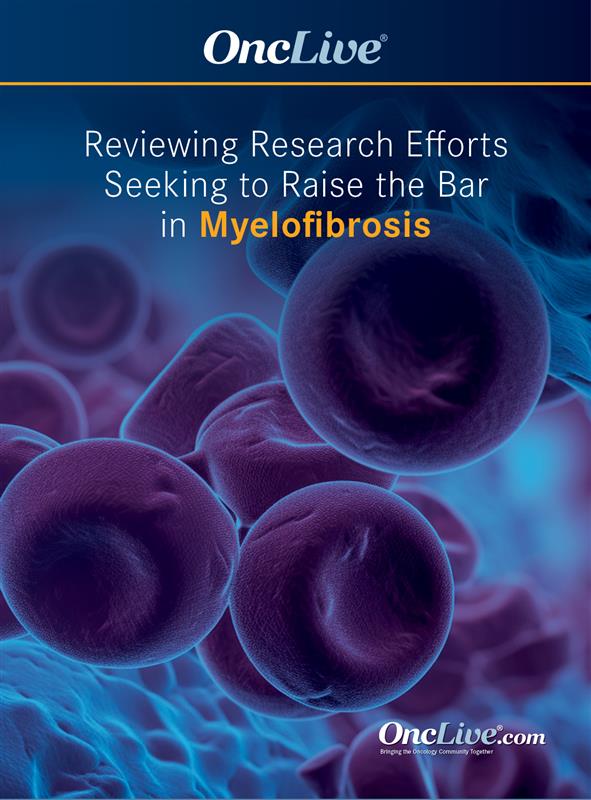Commentary
Video
Supplements and Featured Publications
Dr Gerds on the Importance of Evaluating Selinexor in JAK Inhibitor–Naive Myelofibrosis
Author(s):
Aaron Gerds, MD, discusses the importance of evaluating the efficacy and safety of selinexor in patients with JAK inhibitor–naive myelofibrosis, as assessed in the phase 1/3 XPORT-MF-034 trial.
Aaron Gerds, MD, assistant professor in medicine, Hematology and Medical Oncology, Cleveland Clinic Taussig Cancer Institute, discusses the importance of evaluating the efficacy and safety of selinexor (Xpovio) in patients with JAK inhibitor–naive myelofibrosis, as assessed in the phase 1/3 XPORT-MF-034 trial (NCT04562389).
Selinexor, a selective inhibitor of nuclear export, is an active agent that has already been studied in the treatment of various hematologic malignancies, Gerds begins. Due to the agent’s adverse effect profile, it is believed to synergize well with ruxolitinib (Jakafi) in this context, he states. Several trials are ongoing in myelofibrosis evaluating selinexor that have produced promising phase 1 and phase 2 data that have since been shared at various international congresses, Gerds emphasizes. Notably, the dosing schedule for the novel agent in myelofibrosis differs from that inmultiple myeloma and is intended to mitigate the cytopenias and associated toxicities that can limit the agent’s use.
Numerous prospective trials are underway, such as the XPORT-MF-034 study, which was discussed at the 2023 ASH Annual Meeting, Gerds expands. The study, which is investigating the combination of ruxolitinib plus selinexor vs ruxolitinib and placebo,aims to extend the activity of frontline treatment strategies to more patients with myelofibrosis, he states. Data from the phase 1 portion of the study showed that selinexor when combined with ruxolitinib had encouraging signals of durable spleen volume response.
Notably, the concept of combination therapy in the upfront setting has become a reality. Recent findings presented at the 2023 ASH Annual Meeting showcase positive results from studies exploring various agents in the frontline setting, marking a pivotal moment in the transition from JAK inhibitor monotherapy to combination therapies, Gerds explains.
Although JAK inhibitors have revolutionized myelofibrosis care, significant strides are needed to enhance patients’ quality and duration of life, he states. The rapid integration of combination therapy into the frontline setting, bypassing the second-line and relapsed/refractory disease stages, represents an advancement for the field and a strategic move likely to benefit patients in the long term, Gerds concludes.










